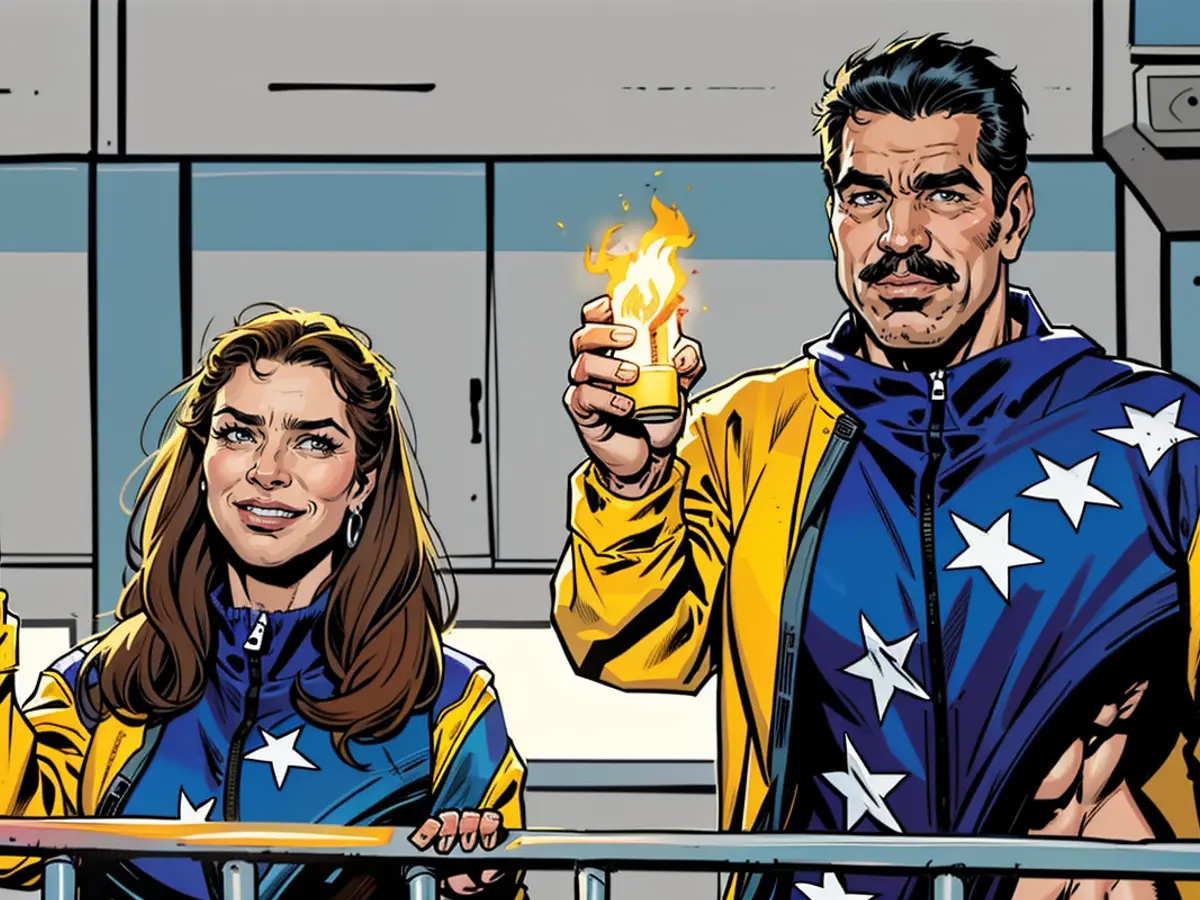Opposition claims victory in Venezuela as well
The electoral authority declares Nicolas Maduro as the winner of Venezuela's presidential election with approximately 51.2% of the votes. The opposition reports irregularities.
After the declaration of victory for incumbent Nicolas Maduro by the National Electoral Council, the opposition also claimed victory in Venezuela's presidential election, reporting irregularities earlier in the voting process. The opposition camp of candidate Edmundo Gonzalez predicted a win for their candidate early in the evening.
The United States has raised concerns about the victory of Amtsinhaber Nicolás Maduro declared by the National Electoral Council in Venezuela's presidential election. Secretary of State Antony Blinken stated that the US has "serious concerns" that the reported result does not reflect the will of the people. Previously, the chairman of the Venezuelan Electoral Council, Elvis Amoroso, announced that Maduro secured approximately 51% of the votes and placed the opposition candidate Edmundo Gonzalez in second place with approximately 44%. Amoroso declared the result as "unalterable." The opposition's reaction is still pending.
Several polls predicted a win for opposition candidate Gonzalez. However, observers did not expect a free and fair election. Recently, numerous opposition figures were arrested, and government-critical candidates were not allowed to run. The NGO Foro Penal reported over 300 political prisoners. Popular opposition leader María Corina Machado was banned from holding public office for 15 years due to alleged irregularities during her tenure as a deputy. In her place, the previously virtually unknown Gonzalez ran for president.
Maduro can now begin his third six-year term in January 2025. According to observers, the chances of a political change in Caracas were almost non-existent based on previous assessments. Unlike the elections six years ago, the opposition showed unity this time. Additionally, even previously loyal supporters of the socialist regime were disillusioned due to the catastrophic economic situation.
One quarter of the population has left the country
Over 80% of the population live in the once wealthy country with vast oil reserves below the poverty line. Frequent power outages occur. Gas, medicines, and gasoline are in short supply. More than seven million people - one quarter of the population - have left Venezuela in the last ten years due to poverty and violence.
Maduro threatened chaos if the opposition won. He warned of a bloodbath and a civil war in Venezuela if he was not re-elected in the voting. After casting his vote, he stated that his re-election was "the only option for peace." Maduro repeatedly referred to the Venezuelan electoral system as "the most reliable, transparent, and secure electoral system in the world."
EU could not send observers
The EU was not represented by observers during the election due to the withdrawal of an invitation by Venezuela's electoral authority on account of existing personal sanctions against representatives of the National Electoral Council. Four former Latin American presidents were prevented from traveling to observe the election according to Panamanian authorities. The United Nations did send some election experts, but their roles were limited, as the body does not issue public statements to evaluate the election process.
During the presidential election, there have been sporadic incidents reported. Observers and the opposition alleged numerous irregularities and intimidation attempts during the vote counting process by the electoral authorities. In the capital Caracas, there were physical altercations between supporters of the ruling party and the opposition in front of a polling station. In several states, armed pro-government motorcycle groups, known as "Colectivos," were reported.
Despite these incidents, according to the General Prosecutor Tarek Saab, the election proceeded mostly peacefully. The voter turnout, according to the largest polling station in Caracas, was approximately 50%, while the opposition had predicted a nationwide turnout of around 55% beforehand.
Maduro threatens bloodshed
The opposition led by Gonzalez had previously warned about potential irregularities and urged their observers to remain at the polling stations until the end of vote counting. The main opposition observer, Delsa Solorzano, was prevented from entering the electoral authority building.
Maduro's re-election in 2018 was not recognized internationally. Both sides now called for acknowledging the official election results. The election is considered the most significant since a quarter-century of socialist rule in Venezuela.
The international community, specifically the United States, has expressed concerns over the victory of President Nicolás Maduro in Venezuela's presidential election due to alleged irregularities. Despite declarations of victory by both the National Electoral Council and opposition leader Edmundo Gonzalez's camp, the opposition continues to report irregularities in Venezuela's presidential election.








